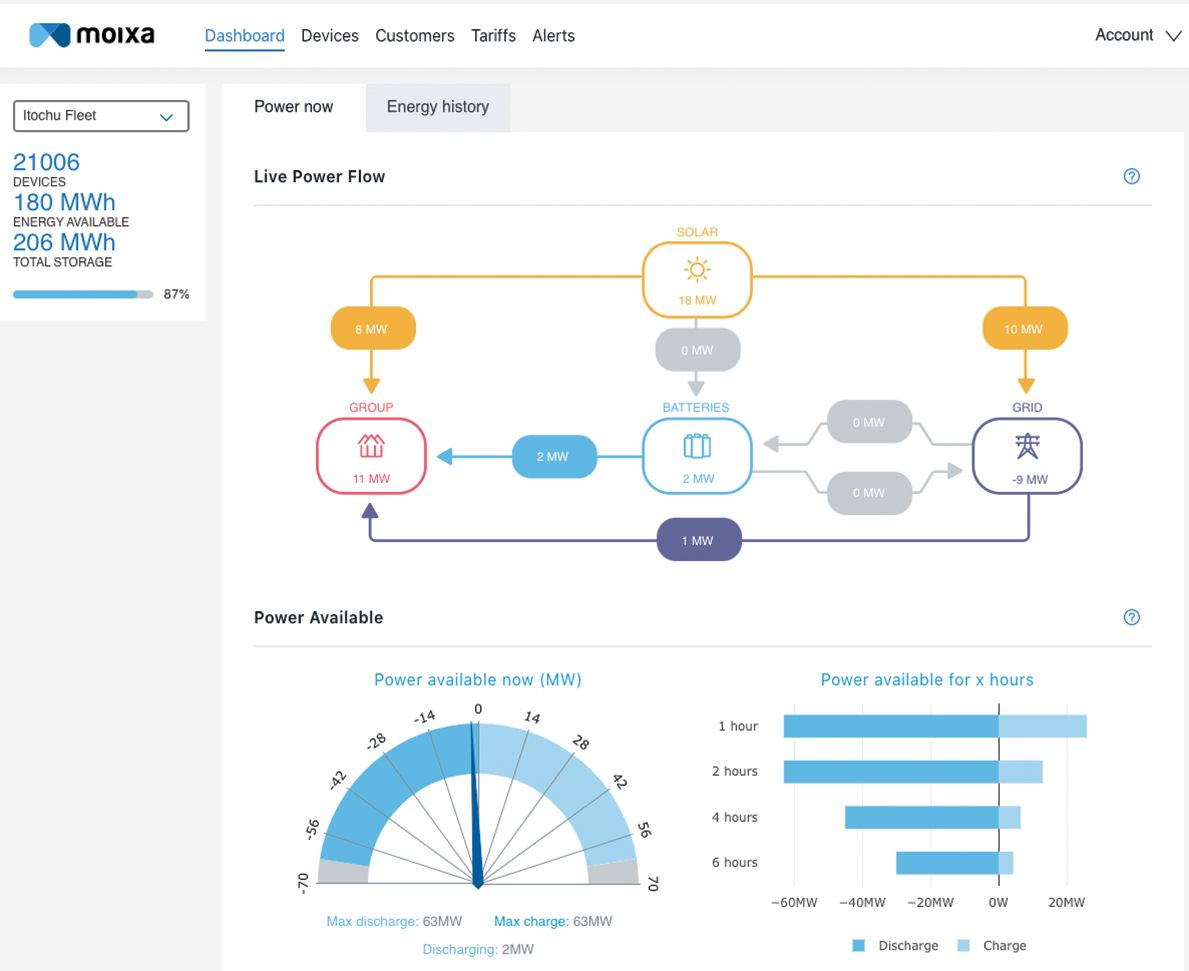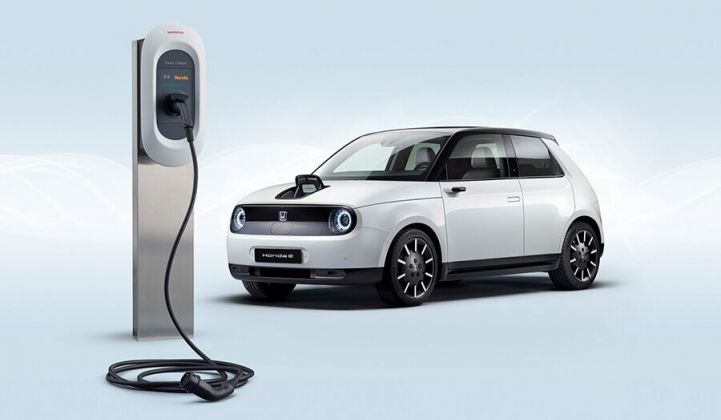U.K. smart storage startup Moixa has raised £4.6 million ($5.8 million) of funding and aims to raise another £10 million by the end of the year, as it prepares to expand its energy storage management platform across the U.S. and Europe.
Japanese conglomerate and battery maker Itochu, which is Moixa's partner in the Japanese market, led the Series C funding round.
Japan is currently the largest market for Moixa's artificial intelligence-based GridShare platform. Moixa claims the Itochu storage assets it oversees make up the largest managed fleet of residential batteries in the world.
Moixa's recent growth in Japan has been rapid: Its GridShare software now supports more than 22,000 storage systems in the country, having only hit the 10,000-unit mark in November 2019. In other words, GridShare now orchestrates more batteries in Japan than were installed across the whole of California as of the end of 2019.
“We are on an exponential trajectory. [...] The next step is 50,000 or 100,000 [batteries under management] and then millions," founder and CEO Simon Daniel told GTM.
Compared to other virtual power plant or energy management systems, the GridShare technology has a deeper relationship with the smart appliances it connects to, Daniel said. The platform has a higher awareness of a customer's needs and is reconfigured as regulatory conditions change, he said.
For example, if a Japanese customer’s postal code is issued a typhoon warning, GridShare flips their battery into backup mode rather than charging an EV. The country’s 10-year solar export tariffs, established in 2009, are running out for many Japanese households, and GridShare can switch to prioritizing self-consumption instead of exporting power when that happens.
The entire Itochu fleet can now be dialed up or down by as much as 70 megawatts, similar to a small pumped hydro system, only distributed across the network.
 Moixa's GridShare platform in Japan. A live version seen by GTM later in July had topped 22,000 devices with the power able to be turned up or down by more than 70 megawatts. (Credit: Moixa)
Moixa's GridShare platform in Japan. A live version seen by GTM later in July had topped 22,000 devices with the power able to be turned up or down by more than 70 megawatts. (Credit: Moixa)
Making smart energy market growth happen
Moixa now has its sights on the U.S., Europe and potentially other markets in Asia where Itochu is not yet a major player. The company is working to forge new partnerships based on each market's structure and needs. It has a partnership with the monopoly utility in Lithuania and a pan-European partnership with Honda.
“Part of this funding round is to build more of those strategic partnerships with global companies,” Daniel said.
“Moixa aims to manage the world's batteries," he added. While the company has made its own batteries and will continue to do so in some instances, "predominantly we are working with partners who make or sell the world's batteries."
Moixa's own hardware, the Smart Battery, has around 1,000 units installed in the U.K., but it is the GridShare platform that is at the heart of its recent growth.
Tapping the storage opportunity from EVs
Moixa's new funding round will be used in part to get its European smart-charging partnership with Honda off the ground.
The EV market could act as a huge multiplier of the growth in standalone residential batteries. Moixa and Honda will launch the e:Progress smart-charging platform in Europe later this summer.
Honda sells around 6 million cars a year, including 500,000 a year in Europe, and from 2022 onward, it will only manufacture electric vehicles.
“Last year around 100 gigawatt-hours of energy storage was put into EVs," Daniel said. "By 2030 there will be around 10 terawatt-hours installed in the 250 million vehicles that are expected to be electrified."
Daniel issued one note of caution about the market, however. In order for distributed storage to reach its full potential, the market will need interoperability, shared standards and collaboration across the value chain. If a homeowner uses a battery only for their own purposes, rather than opening it up for use on the broader grid, neither they nor the grid will see the full benefits.
“You have to collaborate in order to get the optimal results, and that collaboration is with the utility and the network,” Daniel said.




